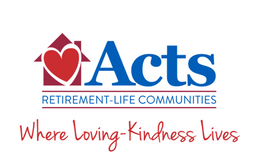How to Evaluate Your Finances for Retirement
It's a big job, but in an uncertain world, it's best to start early

Retirement is an exciting time in your life. You hopefully now have more freedom to travel, spend time with friends and family and just simply enjoy the good life — that is, as long as you can afford to do so. The biggest hurdle to overcome when it comes to retirement has always been ensuring you have the finances to live the life you've always imagined.
This means, of course, that ideally you'd have your finances in order before it's time to retire. It can be difficult to evaluate your finances accurately and that's why we've created this short guide on understanding retirement — specifically related costs and how you can control them. Here's what you need to know:
Housing Costs May Be Your Biggest Hurdle
Whether it's from savings, a pension plan or investments, you will need financial resources to support you once you stop working. At the same time, you also need to control the amount of money you spend on actual living — and one of the biggest retirement-related costs is housing.
You might think that you can age in place in your current home to help save on housing costs, but for many, this could be the wrong decision. The expenses associated with maintaining a property can be much higher than you realize, especially when you factor in property taxes, utilities, maintenance and repair costs. On the other hand, the sale of an existing home can help bolster your retirement savings — even when reinvesting some of the proceeds into living elsewhere, such as a smaller home, an apartment or a retirement community.
So What is a Retirement Community?
If aging in place is too cost prohibitive, it may be time to consider an alternative: living in a retirement community. A portion of your home sale may be able to finance your move to a retirement community, and all utilities, maintenance, lawn care, snow removal, etc. will be covered by your monthly fee. But the real benefits are the extra amenities included in this fee, which make retirement communities such a good option.
What kinds of amenities are available? Think fitness centers and trainers, which can save you gym membership costs, fine dining to cover portions of your food budget and even a hair salon on campus. You can experience swimming pools, art and woodworking studios, classes for hobbies and learning, computer and library rooms and performing arts centers. Many communities have beautifully landscaped outdoor areas including walking trails, shuffleboard courts, gardening opportunities and more. All of these amenities are accessible and make it easier to enjoy your retirement without having to worry about extra costs.
Don't Forget Your Health Care Costs
Finally, you should also look at what you expect to pay for your health care costs during retirement. While you will likely have access to Medicare, it's important to realize that Medicare does have coverage gaps, especially for more advanced medical issues. If you're relatively healthy, you might think this is enough, however as our bodies get older, our physical needs may change — and that may change what you need in terms of health care.
It can be difficult to budget for your lifestyle if you don't know what your health care budget needs will be. One solution is to move to a continuous care retirement community (CCRC). These types of retirement communities offer continuity of health care to residents that keep up with their needs as they age, with no increase to their monthly costs based solely on a change in care. What this means is you can move into a CCRC as an independent living resident, enjoy all the communities' amenities and also maintain a consistent budget. Then should you or your significant other ever need a higher level of care such as assisted living or skilled nursing care, it's already accounted for in your budget. You simply move into the needed care within your current community.
Get Professional Help
Getting your finances ready for retirement is a big job. You may want to enlist the aid of a professional, such as a financial planner with a background in retirement savings and investments. The sooner you begin the process of organizing your finances with an aim towards building your retirement savings, the better. Financial planners can help you fine-tune your savings and investment plans to help you meet your goals and experience the quality of life you are looking for when it comes time to retire.
Want more information about preparing for retirement? Read these articles by Acts-Retirement Life Communities.

Acts Retirement-Life Communities is the largest not-for-profit owner, operator and developer of continuing care retirement communities in the United States. Headquartered in suburban Philadelphia, Acts has a family of 23 retirement communities that serve approximately 8,500 residents and employ 6,200 in Pennsylvania, Delaware, Maryland, North and South Carolina, Georgia, Alabama and Florida. For more information about Acts visit actsretirement.org.

